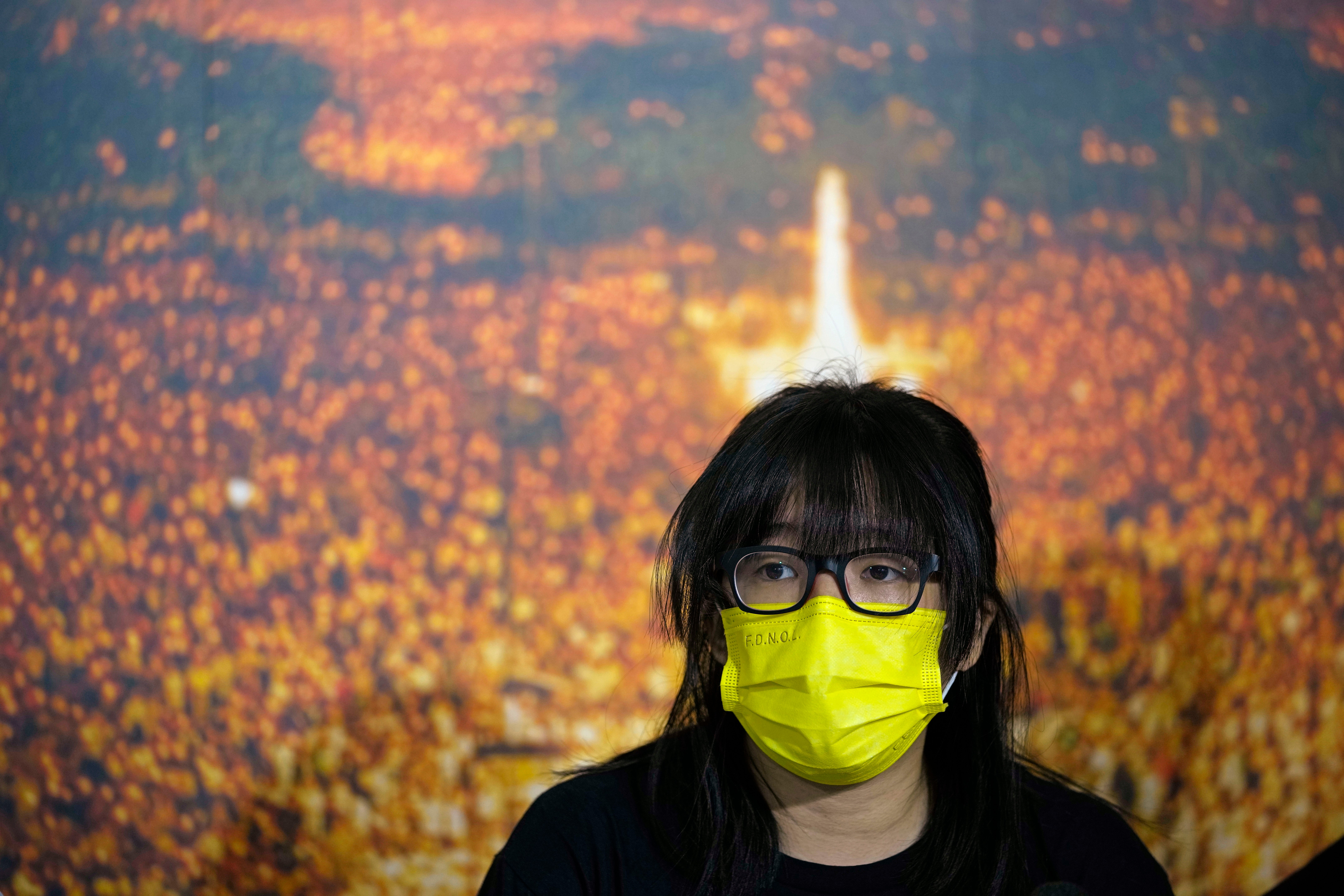3 Hong Kong activists behind Tiananmen vigil lose bid to overturn conviction
Three former organizers of Hong Kong’s annual vigil in remembrance of the 1989 Tiananmen Square crackdown on pro-democracy protests have lost their bid to overturn their conviction over their refusal to provide authorities with information on the group under a national security law

Your support helps us to tell the story
From reproductive rights to climate change to Big Tech, The Independent is on the ground when the story is developing. Whether it's investigating the financials of Elon Musk's pro-Trump PAC or producing our latest documentary, 'The A Word', which shines a light on the American women fighting for reproductive rights, we know how important it is to parse out the facts from the messaging.
At such a critical moment in US history, we need reporters on the ground. Your donation allows us to keep sending journalists to speak to both sides of the story.
The Independent is trusted by Americans across the entire political spectrum. And unlike many other quality news outlets, we choose not to lock Americans out of our reporting and analysis with paywalls. We believe quality journalism should be available to everyone, paid for by those who can afford it.
Your support makes all the difference.Three former organizers of Hong Kong’s annual vigil in remembrance of the 1989 Tiananmen Square crackdown on pro-democracy protests lost their bid to overturn their conviction Thursday over their refusal to provide authorities with information on the group under a national security law.
Chow Hang-tung, Tang Ngok-kwan and Tsui Hon-kwong were core members of the Hong Kong Alliance in Support of Patriotic Democratic Movements of China before it disbanded under the shadow of the Beijing-imposed law in 2021. They received a sentence of 4 1/2 months last year — widely seen as part of a crackdown on dissidents following massive pro-democracy protests in 2019.
The alliance was long known for organizing candlelight vigils in the city on the anniversary of the Chinese military’s crushing of the 1989 protests in Beijing. Critics said its shutdown reflected that civil liberties were shrinking despite promises they would be kept intact when the former British colony returned to Chinese rule in 1997.
Before the group dissolved, police had sought details about its operations and finances in connection with alleged links to pro-democracy groups overseas. Police accused the group of being a foreign agent. But the group refused to cooperate, arguing police were arbitrarily labelling pro-democracy organizations as foreign agents.
Judge Anna Lai at the Court of Appeal dismissed their appeal Thursday, saying she was satisfied that there was ample evidence to support the convictions.
Last December, their lawyer argued in an appeal hearing that the activists were denied a fair trial because they had not been shown the full evidence that suggested the group was a foreign agent.
During previous legal proceedings at the lower court, some crucial details, including the names of groups that were alleged to have links with the alliance, were redacted. The court ordered a partial redaction of some information after prosecutors argued that a full disclosure would jeopardize an ongoing probe into national security cases.
After reading the unredacted materials, Lai said the omission was done properly. “Their non-disclosure would not have caused any unfairness to the appellants,” she wrote in her ruling.
She added the prosecution was not required to prove that the alliance was a foreign agent in this case.
Under the security law’s implementation rules, the police chief can request a range of information from a foreign agent.
Chow and two other former alliance leaders, Lee Cheuk-yan and Albert Ho, were charged with subversion in a separate case under the sweeping law in 2021. It was still unclear when their trial would begin.
The annual vigil organized by the alliance at Hong Kong's Victoria Park was the only large-scale public commemoration of the June 4 crackdown on Chinese soil for decades. It was attended by thousands each year until authorities banned it in 2020, citing anti-pandemic measures.
After the lifting of COVID-19 restrictions last year, the park was occupied instead by a carnival organized by pro-Beijing groups to celebrate Hong Kong’s handover in 1997. Those who tried to commemorate the event near the site were detained. Many others marked the day in private ways under the chilling effect brought by the tough law.